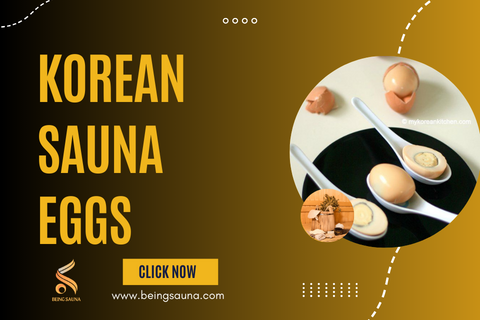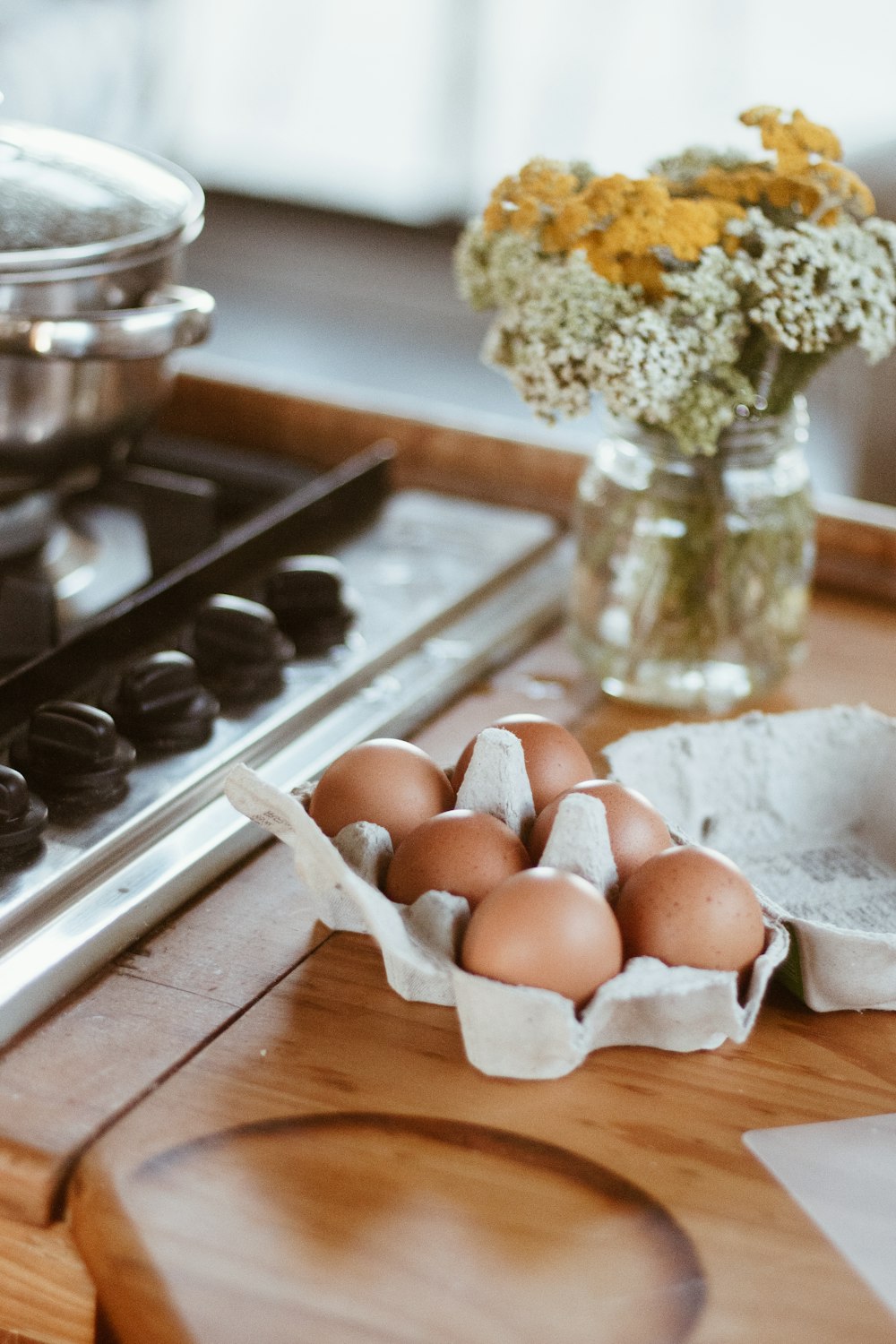Korean sauna eggs, also known as “jjimjilbang eggs”, are a popular snack in Korea that can be found in most Korean saunas or bathhouses. These eggs are cooked uniquely, resulting in a delicious and nutritious treat. In this article, we’ll explore the history and health benefits of Korean sauna eggs, as well as how to make them at home without a pressure cooker.
The History of Korean Sauna Eggs
Origin of Korean Sauna Eggs
The origin of Korean sauna eggs can be traced back to the Korean War in the 1950s. During this time, food was scarce and people had to be creative with their meals. One day, a Korean woman who was working at a bathhouse accidentally dropped some eggs into a pot of boiling water. She left them there and when she returned, she found that the eggs had turned a beautiful brown color and had a unique taste. This discovery led to the creation of Korean sauna eggs.
Popularity of Korean Sauna Eggs
Korean sauna eggs quickly gained popularity among bathhouse visitors due to their delicious taste and convenience. They are easy to make and can be eaten on the go, making them a perfect snack for those who have just finished a relaxing sauna session. Over time, Korean sauna eggs have become a staple in Korean culture and can now be found in many Korean restaurants and markets.
Health Benefits of Korean Sauna Eggs
High in Protein
Korean sauna eggs are a great source of protein, with one egg containing about 6 grams of protein. Protein is essential for building and repairing tissues in the body, making these eggs a nutritious snack option.
Rich in Vitamins and Minerals
Korean sauna eggs are also rich in vitamins and minerals, including vitamin A, vitamin D, and calcium.
Vitamin A is important for maintaining healthy skin and eyes, while vitamin D helps with calcium absorption and bone health.
Calcium is essential for strong bones and teeth.
Low in Calories
One Korean sauna egg contains only about 70 calories, making it a low-calorie snack option. This makes it a great choice for those who are watching their calorie intake but still want a tasty and filling snack.
Boosts Energy
Korean sauna eggs are a great source of energy, making them a perfect snack for those who are feeling tired or sluggish. The protein and vitamins in these eggs can help boost energy levels and keep you feeling full and satisfied.
How to Make Korean Sauna Eggs Without a Pressure Cooker
Traditionally, Korean sauna eggs are made using a pressure cooker. However, if you don’t have one at home, you can still make delicious and authentic Korean sauna eggs using a regular pot. Here’s how:
Ingredients:
- 6-8 eggs
- 1/4 cup soy sauce
- 1/4 cup water
- 1 tbsp sugar
- 1 tbsp sesame oil
- 1 tsp black pepper
- 1 tsp minced garlic
- 1 tsp minced ginger
Instructions:
- In a pot, bring enough water to cover the eggs to a boil.
- Gently add the eggs to the boiling water and let them cook for 7 minutes.
- While the eggs are cooking, prepare an ice bath by filling a bowl with cold water and ice cubes.
- After 7 minutes, remove the eggs from the boiling water and place them in the ice bath for 5 minutes.
- In a separate pot, mix the soy sauce, water, sugar, sesame oil, black pepper, minced garlic, and minced ginger.
- Peel the eggs and add them to the pot with the sauce mixture.
- Bring the sauce to a boil and then reduce the heat to low.
- Let the eggs simmer in the sauce for 10 minutes, turning them occasionally to ensure they are evenly coated.
- After 10 minutes, remove the eggs from the sauce and let them cool.
- Once cooled, the eggs are ready to be enjoyed!
What Makes Korean Sauna Eggs Different?
You may be wondering what sets Korean sauna eggs apart from regular boiled eggs. The answer lies in the cooking process. Korean sauna eggs are cooked at a lower temperature for a longer period of time, resulting in a unique texture and flavor. The eggs are also marinated in a flavorful sauce, giving them a delicious and savory taste.
Where to Find Korean Sauna Eggs
- A. Local Korean Saunas and Their Offerings: Korean sauna eggs, a delicacy synonymous with the warmth of jjimjilbangs, can be found in the heart of these local saunas. Each establishment often has its secret method of preparing these eggs, giving them a distinct taste and texture that reflects the sauna’s character.
From the bustling streets of Seoul to the tranquil corners of Jeju Island, sauna-goers can indulge in this savory snack, often sold at the sauna’s café or vending machines.
- Online Sources for Purchasing Sauna Eggs: For those who crave the taste of Korea but reside elsewhere, the internet offers a solution. Numerous online Korean grocery stores now sell pre-cooked sauna eggs, ready to be reheated. Some websites even offer DIY sauna egg kits, complete with specially selected eggs and detailed instructions to recreate the experience at home.
- Tips for Sourcing High-Quality Eggs: The key to a perfect sauna egg lies in the quality of the egg itself. Look for organic, free-range eggs with a rich, orange yolk – a sign of a well-nourished hen. Local farmers’ markets or trusted organic stores are ideal places to source these high-quality eggs.
Serving Suggestions and Recipes
- Traditional Serving Methods: Traditionally, Korean sauna eggs are savored simply with a pinch of sea salt, allowing the subtle smokiness to shine. They are often accompanied by a cold, refreshing barley tea, which complements the eggs’ robust flavor.
- Modern Twists on Serving Sauna Eggs: Contemporary Korean chefs have introduced innovative ways to enjoy sauna eggs, such as slicing them over salads for a protein boost or incorporating them into bibimbap for a smoky twist. Some even use them as a unique topping on pizzas or in sandwiches.
- Delicious Recipes Incorporating Sauna Eggs: One popular recipe is the Sauna Egg Kimchi Fried Rice, where diced sauna eggs are stir-fried with kimchi, rice, and a medley of vegetables, then seasoned with soy sauce and sesame oil for a hearty meal.
Conclusion
Korean sauna eggs are a delicious and nutritious snack that can be enjoyed by people of all ages. They are easy to make at home and can be a great addition to your diet. With their high protein content, vitamins and minerals, and low-calorie count, these eggs are a healthy snack option that can help boost energy levels and keep you feeling satisfied. So why not give them a try and experience the unique taste of Korean sauna eggs for yourself?
FAQ’s
Why do Koreans eat eggs in saunas?
The practice is rooted in the belief that eggs symbolize rejuvenation and vitality, representing a fresh start and the replenishment of energy after sweating it out in the sauna. Eating eggs in this setting is thought to promote overall health and well-being, as they are packed with essential nutrients.
How to store Korean sauna eggs?
To store Korean sauna eggs, follow these steps:
Cool the Eggs: After cooking, let the eggs cool down to room temperature.
Refrigerate: Place the cooled eggs in an airtight container or a sealed plastic bag.
Store Properly: Keep them in the refrigerator for up to 5 days for optimal freshness.
Remember, it’s important not to leave the eggs at room temperature for extended periods after cooking, as this can lead to spoilage. Enjoy your Korean sauna eggs!
Why do sauna eggs turn brown?
Sauna eggs turn brown due to the Maillard reaction, which occurs during the long cooking process. This reaction between amino acids and reducing sugars gives the eggs a unique roasted, nutty flavor and a distinctive brown color.
Do Koreans eat eggs every day?
Yes, eggs are an integral part of the Korean diet. They are commonly consumed daily as they are an affordable, convenient, and nutritious source of protein. The average Korean consumes about 250 eggs per year, which is comparable to egg consumption in the United States.
Is it safe to store Korean Sauna Eggs?
Yes, it is safe to store Korean sauna eggs. After cooking, allow them to cool to room temperature, place them in an airtight container and refrigerate. They can be safely stored in the refrigerator for up to 5 days. Always ensure they are consumed before any signs of spoilage for the best taste and safety.
How to use Korean sauna eggs without a pressure cooker?
You can use a rice or slow cooker to make Korean sauna eggs without a pressure cooker. For instance, you can cook eggs in a rice cooker with water and some salt for about 50 minutes to achieve a similar effect. Alternatively, a slow cooker can be used by setting it to a low temperature for several hours.

